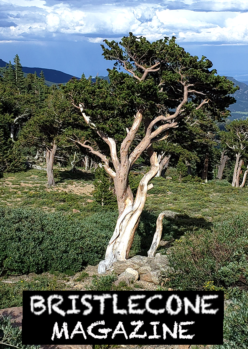North West Marine and Agronomy 1968
![]()
![]() We still live close by here
We still live close by here![]()
![]() as settlers
as settlers![]()
![]() on unceded Musqueam land.
on unceded Musqueam land.
When we came here, the totems
lay, losing their faces to the knives
of whittlers and to rot in the small
copse. An asbestos shed stood
for some attempt at restoration,
but seemed more an abattoir
for the icons of clan animals
than a carver’s workshop.
Saw marks in the place of faces
showed where some had been
taken off and the scavenged
masks hung on some wall.
Only the brown bear’s
giant cedar body
stayed as it was carved
for any kid to climb on,
but the place made us feel
as if we had walked back in time
to see the village of the city’s childhood
razed, the long house, the door totems
― stripped of recognition,
turned into a cemetery
of lost identities.
***
A Question about Two Smokers
The old couple in the back of the boat,
they never spoke, they only smoked.
Were they the wise pair of the waves,
the elderly sirens of silence?
We looked at the derelict stacks
of the old tobacco factory―
conical brick, 19th century monuments
to the relics that hung from our smokers’
mouths.
Were they Don José and Carmen,
who married and lived, faithfully,
silently smoking on a memory,
till the tobacco factory died?
Our sea tour turned around an almost
bygone addiction, love, and cigarettes,
except here, west of Malaga, whose
erstwhile industry, Malagueños
say, Bizet transplanted to Seville
for better ambience and PR.
Is it true, and are these two on the backboard
ghosts — their cigarette smoke, twin plumes
of impotence that will never haunt the thief
who purloined their story, leaving them
to float speechless and forever in the stern
of a small, blue, harbour-tour boat?
***
Rotations
For José Emilio Pacheco
Here, I come, cresting as slow as Rosinante and Sancho Panza’s donkey
above the dunes at Tarifa and Sta. Catalina’s tail, laid on the water
with a castle at the end, no longer poised to sting with red, white
and black cannon fire in the duel of the dual blues
that divide and define the Med from the Atlantic,
and Spain from England, later, at Gibraltar.
What must I have looked like, beside you, in my creeping,
crawling old age — not unlike Quixote of the sad face, tied
by imperious script to an inky torture of captivity with one,
who will grow, incrementally in everyone’s mind, to be my fat,
loving partner — always at my irascible beck and itchy elbow
to mind me through my flibbity-gibbet-ous digressions.
This is what reading myself into Cervantes has made me:
random in my mind as driftwood off the sea. Still, the old,
widow-weedy crone by the quay believed we were come
to arbitrate because there is a war, here, over the water
for the wind: fishermen, pestering for el poniente,
out of the west and off the sea; the wind taken out of their sails,
pirated by the prayers of windsurfers, who invoke the wicked
levante, out of the east and overland.
If I were Quixote, which wind ought I to quell, whom should I support:
the fishermen’s wives in church each morn, keening for a wind
to drive their husbands home, or the gaggle of ill-clad girls with their wind-
worshipper’s faces, dustier than the moor’s.
We climb the mane of the mountain
from their duskiness into a deeper dusk, to debate the opposing winds;
the contentious waters and two competing blues: Atlantic turquoise
and Mediterranean blue of bruised history,
too deep to dilute, pouring on to Ilium.
High on the cliff-face, my own face dropping like a spade,
I encounter the giant, steel-grey knights of the four
rotating swords building momentum for a thrust
at the billboard-bull of one, Pedro Domecq,
behind whose beastly effigy, real ones waltz,
snort and ruffle the grass as they graze
on the wildflowers of a hinterland demesne.
I am told by my Panza that the knights are posted here
to cure Spain’s halitosis and kill the dragon, Dirty Energy,
that gargles coal and spits Repsol gas
into any car or kitchen that kindles with the turn of a key.
Tilting at the air with flexi-directional blades,
I encounter a truth as turquoise clear as the Atlantic:
the windmill has become Quixote.
George McWhirter’s Catalan Poems shared the 1972 Commonwealth Poetry Prize with Chinua Achebe’s Beware, Soul Brother. His translations of Mexican poet, José Emilio Pacheco, and the Selected he edited and published with New Directions won the F.R. Scott Prize for Translation. His poetry is anthologized in Seamus Heaney’s Soundings 72, (Blackstaff Press, Belfast), The Penguin Book of Canadian Verse and Irish Writing in the Twentieth Century (Cork University Press, David Pierce, editor). His most recent magazine publications of poetry have been in Abridged (Derry, Northern Ireland) and The Antigonish Review (Nova Scotia, Canada). His translation of Homero Aridjis’ Self-Portrait in the Zone of Silence (New Directions, 2023) has won the 2024 Griffin Poetry Prize. He lives in Vancouver, British Columbia.

Note that after these poems were published, George McWhirter won the prestigious Griffin Poetry Prize for his translation of SELF-PORTRAIT IN THE ZONE OF SILENCE, written in Spanish by Mexican poet Homero Aridjis. See https://griffinpoetryprize.com/press/canadians-sweep-the-2024-griffin-poetry-prize-awards/ for details. Congratulations, George!
A cemetery of lost identities; that ghostly old couple, silent and smoking as if from the past; and the splendid rotations, windmills becoming something else, just as quixotic. One chaotic, too-quick trip to Spain, with high school students, but those Pedro Domecq bulls are vivid in memory.